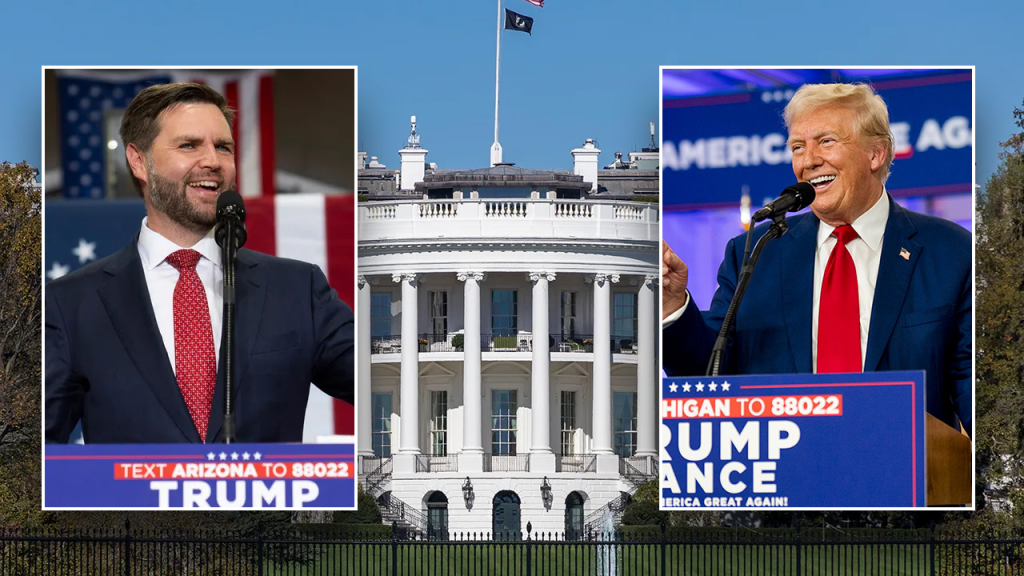Trump Transition Dominates Headlines as New Administration Takes Shape
The political landscape is buzzing with activity as the Trump transition gains momentum, bringing with it a flurry of policy proposals, personnel appointments, and reactions from across the spectrum. From Capitol Hill to the international stage, the impending Trump presidency is shaping discussions and driving debate. Key focal points include Trump’s declared intentions to reverse several Biden-era policies, particularly in the energy sector, where he plans to lift restrictions on oil and gas drilling. The appointment of key cabinet members, such as the potential nomination of South Dakota Governor Kristi Noem as DHS chief, is also fueling speculation and discussion, especially given the emphasis on border security in the Republican platform. Trump’s reaction to international events, like the resignation of Canadian Prime Minister Justin Trudeau, further underscores his unique approach to global affairs and adds another layer of complexity to an already dynamic political climate. These developments collectively paint a picture of a transition period marked by significant policy shifts and a distinct change in tone from the previous administration.
Policy Reversals and New Initiatives Signal a Sharp Departure from Biden Era
A central theme emerging from the Trump transition is a concerted effort to undo many of the policies enacted by the Biden administration. This is perhaps most evident in Trump’s pledge to immediately reverse Biden’s ban on new oil and gas drilling along the U.S. coast, a move that signals a prioritization of domestic energy production. Another prominent example is the anticipated wave of border security bills expected to hit the House floor as Republicans assert their control over the legislative agenda. These legislative efforts aim to address what Republicans perceive as weaknesses in border security under the previous administration. Beyond reversals, the Trump administration is also putting forth its own policy initiatives, with potential implications for everything from diet and nutrition, as evidenced by discussions surrounding RFK Jr.’s potential impact on food policy, to international relations, highlighted by Trump’s reaction to the Canadian political landscape. These changes foreshadow a potentially significant realignment of national priorities and a departure from the policy trajectory of the preceding years.
Cabinet Appointments and Personnel Decisions Fuel Speculation and Debate
The process of filling key cabinet positions is generating considerable attention, as potential nominees are scrutinized and their qualifications debated. The reported consideration of Governor Kristi Noem for the role of DHS chief has sparked discussion on national security and border control, given her strong stance on these issues. Other personnel decisions, including potential appointments related to health and nutrition, are also under scrutiny, particularly given the ongoing debate surrounding vaccination policies and RFK Jr.’s stance on the issue. These appointments, coupled with the selection of a new chief of staff who has pledged to minimize internal conflict, indicate an attempt to build a cohesive and efficient administrative team. The selection process itself underscores the importance of these roles in shaping the direction of the new administration.
International Developments and Trump’s Global Engagement Draw Attention
The international arena is also witnessing the impact of the Trump transition, with Trump’s reactions to global events offering insights into his foreign policy approach. His comments on Trudeau’s resignation and the potential for closer ties with Canada, framed in the context of a "51st state," highlight his unconventional approach to international relations. Concerns about potential collaborations between Russia and North Korea in the realm of satellite technology further underscore the complex global challenges facing the incoming administration. These developments suggest a potentially more assertive and unconventional approach to foreign policy compared to the previous administration, potentially reshaping international alliances and creating new diplomatic dynamics.
Legal Challenges and Ongoing Investigations Add Complexity to Transition
Alongside policy and personnel decisions, legal matters continue to occupy a significant space in the political landscape. Trump’s ongoing legal battles, including a recent motion filed in a New York case, add another layer of complexity to the transition period. These legal challenges, often characterized by Trump as politically motivated "witch hunts," represent a persistent backdrop to the unfolding political drama. The ongoing investigations and legal proceedings underscore the potential for legal issues to influence the political trajectory of the Trump administration.
Republican Confidence and Democratic Response Shape the Political Discourse
The Republican Party is expressing a high degree of confidence in the Trump transition, characterizing it as a smooth and textbook example of democratic process. This optimistic outlook is reflected in statements from prominent Republican leaders, who express confidence in the new administration’s ability to effectively govern. Meanwhile, the Democratic response to the Trump transition remains to be fully seen, but initial reactions suggest a mixture of concern and skepticism regarding the proposed policy changes and personnel choices. The interplay between these opposing viewpoints will undoubtedly shape the political discourse in the coming months, as both parties navigate the changing political landscape and position themselves for future elections.

